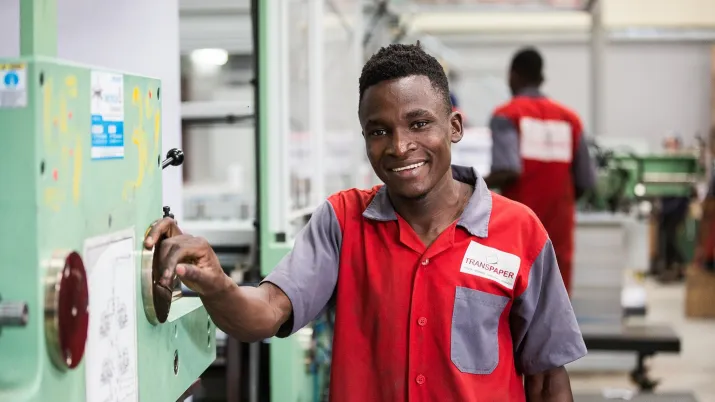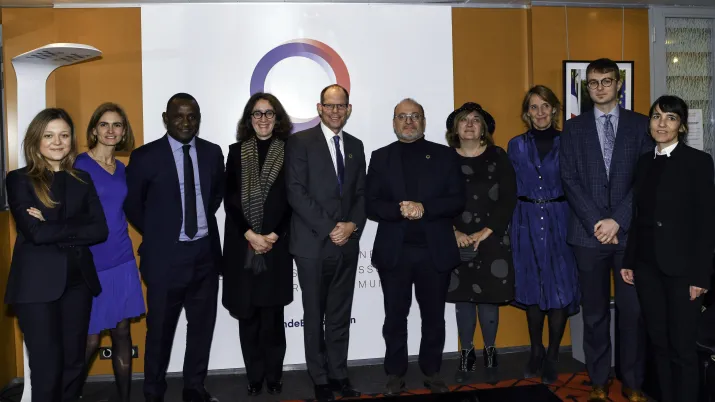Share the page
Uganda

Uganda is a landlocked country in East Africa, it has experienced steady growth for the past 10 years and its poverty rate has significantly decreased. However, the country must create jobs and build quality infrastructure to meet high population growth and the need to diversify its economy, while facing the challenges of climate change. AFD supports the country in these priority areas.
Context
Uganda is a landlocked country in East Africa and has 40 million inhabitants. Its economy is essentially based on agriculture although industrial fabric and services are dynamic.
The poverty rate has significantly dropped over the last 20 years, but still affects one-third of the population. The population growth rate is one of the highest in the world, with about six children per woman, and nearly 400,000 young people entering the work force each year. Uganda shows a strong economic performance, with a steady growth of about 6% per year over the past decade and the government is showing a willingness to invest in infrastructure development, agriculture, tourism, as well as oil and gas, and the development of human capital.
However, Uganda faces two major challenges: population growth and its opportunities for urbanization, job creation and added value, as well as resilience to climate change requiring the development of sustainable development strategies.
To meet the structural needs of the Ugandan economy, AFD intervenes in the areas of drinking water/sanitation, energy and support to job creation.
Through its dedicated window, AFD supports also NGOs operating in Uganda, with multi-country projects in the areas of human rights, inclusive finance and health. Thanks to regular calls for projects, initiatives led by Ugandan actors receive financial support from AFD in the fields of Sport & Development and Cultural and Creative Industries.
AFD has been a partner of the country since 1993 through its subsidiary for private sector Proparco. Acting from the Nairobi regional agency since 1997, AFD opened an office in Kampala in 2009.
AFD's Uganda office is attached to the East Africa regional office in Nairobi.
Our approach
"AFD and Uganda: supporting inclusive, job-creating and environmentally friendly growth"
Uganda's population growth challenges the country's public water and sanitation system.
AFD supports the required investments by:
- Financing, with the other European donors, improved water and sanitation supply services to the population in the Great Kampala Metropolitan Area, including construction of Katosi Water Treatment Plant and transmission main to Kampala, extension of Water Distribution Network, 2,500 prepaid standpipes for 450,000 inhabitants in informal settlements, construction of Nalukolongo Feacal Sludge Treatment Plant and Public Sanitation Facilities;
- Financing improved water and sanitation supply services to the population in the South-West of Uganda, including new Water Treatment Plants to supply sustainable water to Mbarara and Masaka towns, Isingiro Rural District and refugee settlements of Nakivale and Orushinga with UE funding.
Uganda is one of the African countries with the lowest access rate to electricity, with only 60% in urban areas and 18% in rural areas, despite significant hydroelectric potential.
AFD funds projects to:
- Secure the renewable energy generation capacity through the rehabilitation of Kira-Nalubale and Maziba Hydro Power Plants;
- Develop a model for predicting flows and optimizing energy generation on Nile River;
- Promote access for all to electricity, through construction of transmission lines and extension of the distribution network in rural areas in Southern and Western Uganda.
The Ugandan Government identified job creation and the development of the private sector as one of key priorities in its Vision 2040.
By providing credit lines and/or Technical Assistance, AFD thus supports:
- The affordable housing sector with Housing Finance Bank;
- The credit services with Soluti Finance to small agricultural producers and stakeholders in value chains poorly served by the prevailing financial system;
- The access to financial resources for 2 000 refugees with Mercy Corps in order to facilitate their integration in the economy and create job opportunities;
- The access to affordable credit financial resources with Pride Microfinance for 1 000 youth and women entrepreneurs.
PROPARCO, AFD Group's subsidiary dedicated to the private sector, operates in Uganda via commercial loans, equity investments and guarantees to facilitate private investments.
In the field
Below, find the country's projects, news, publications, and contact details in one click.
Projects
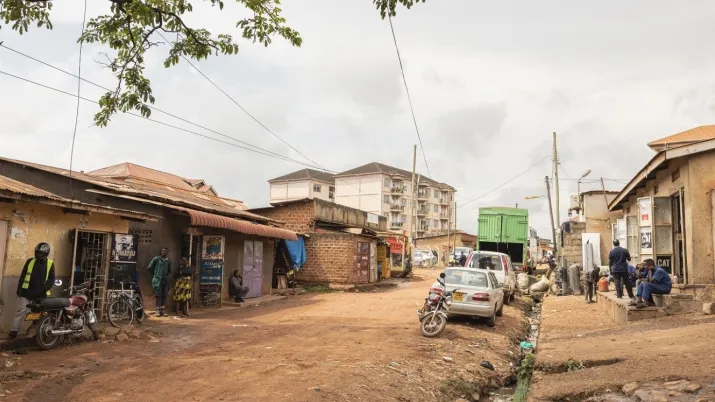
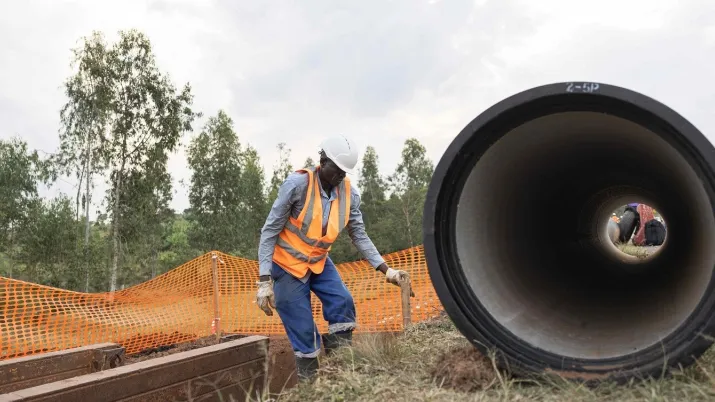
News & Press Releases
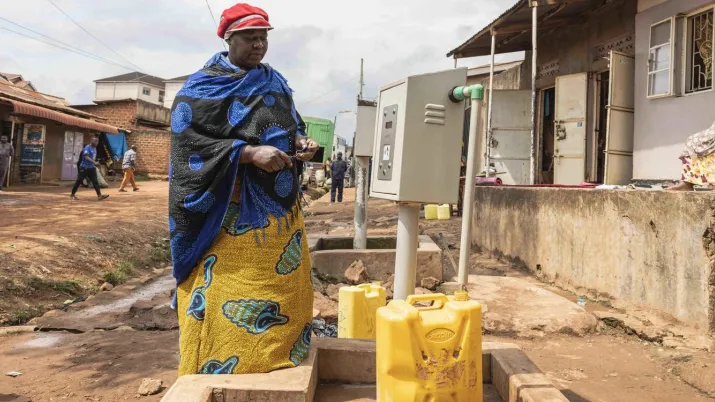
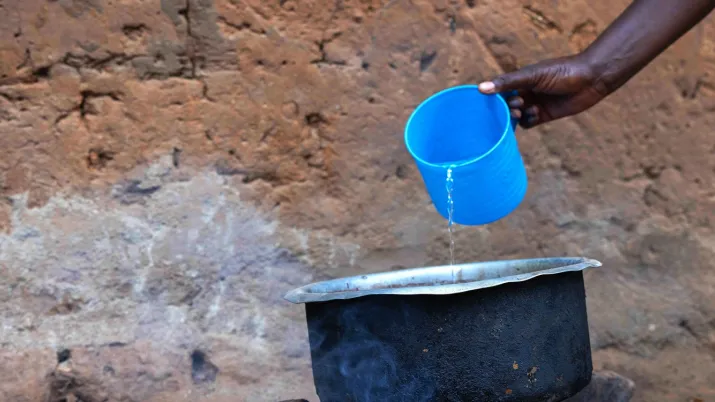
Publications & Media
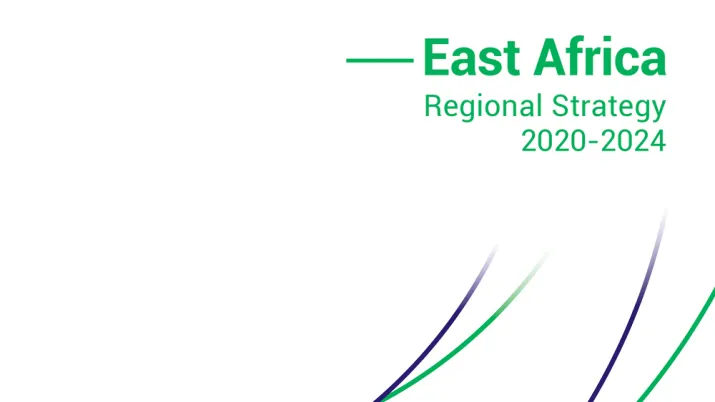
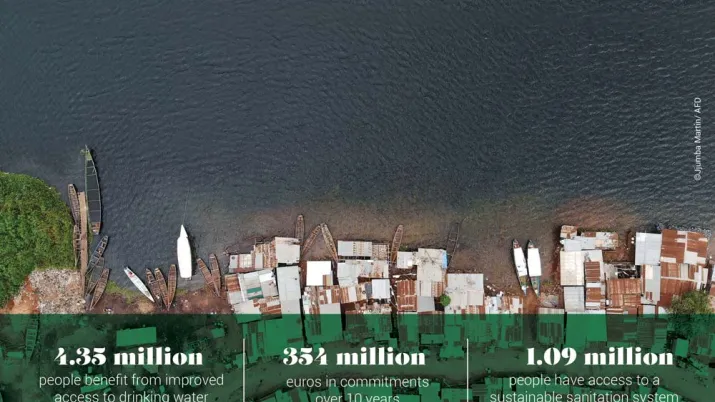
Key figures
-
1 billion euros committed in 20 years
-
5,000,000 beneficiaries with access to sustainable drinkable water
-
40,000 connections to electricity in rural areas

